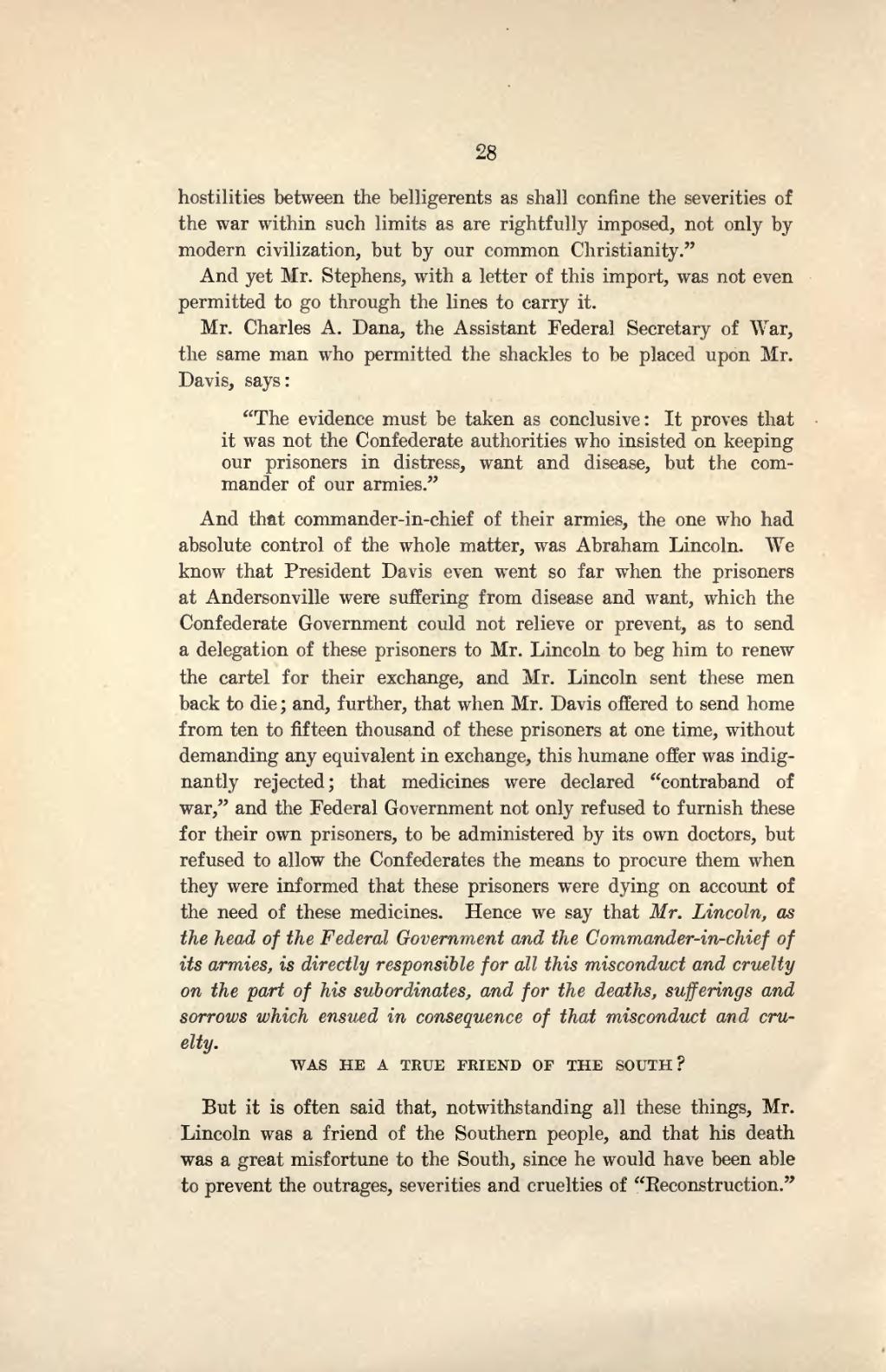28
hostilities between the belligerents as shall confine the severities of the war within such limits as are rightfully imposed, not only by modern civilization,, but by our common Christianity."
And yet Mr. Stephens, with a letter of this import, was not even permitted to go through the lines to carry it.
Mr. Charles A. Dana, the Assistant Federal Secretary of War, the same man who permitted the shackles to be placed upon Mr. Davis, says:
"The evidence must be taken as conclusive: It proves that it was not the Confederate authorities who insisted on keeping our prisoners in distress, want and disease, but the commander of our armies."
And that commander-in-chief of their armies, the one who had absolute control of the whole matter, was Abraham Lincoln. We know that President Davis even went so far when the prisoners at Andersonville were suffering from disease and want, which the Confederate Government could not relieve or prevent, as to send a delegation of these prisoners to Mr. Lincoln to beg him to renew the cartel for their exchange, and Mr. Lincoln sent these men back to die; and, further, that when Mr. Davis offered to send home from ten to fifteen thousand of these prisoners at one time, without demanding any equivalent in exchange, this humane offer was indignantly rejected; that medicines were declared "contraband of war," and the Federal Government not only refused to furnish these for their own prisoners, to be administered by its own doctors, but refused to allow the Confederates the means to procure them when they were informed that these prisoners were dying on account of the need of these medicines. Hence we say that Mr. Lincoln, as the head of the Federal Government and the Commander-in-chief of its armies, is directly responsible for all this misconduct and cruelty on the part of his subordinates, and for the deaths, sufferings and sorrows which ensued in consequence of that misconduct and cruelty.
WAS HE A TRUE FEIEND OF THE SOUTH?
But it is often said that, notwithstanding all these things, Mr. Lincoln was a friend of the Southern people, and that his death was a great misfortune to the South, since he would have been able to prevent the outrages, severities and cruelties of "Reconstruction."
